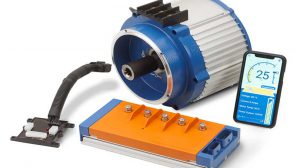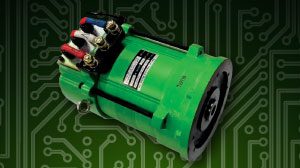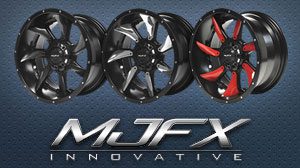By: Matt Vallez
Do you know what kind of water is going into the batteries you maintain? Aside from making sure there is adequate water in the battery in the first place, what’s most important is the purity of that water, because any water is better than no water at all. This is not a question about the water being healthy for humans to drink. The water could be considered healthy for humans, but may be harmful for a battery. Chlorine is commonly used to kill bacteria by water municipalities and is present in most tap water; it keeps the water free from bacteria dangerous to humans. However this same chlorine is harmful to a battery. Any dissolved mineral in the water such as calcium, magnesium, chlorides and other naturally occurring minerals and salts are said to make the water hard. Hard water is water with a high mineral content.
Hard water will shorten the life of any battery, and even more so the life of a deep cycle battery. The more often the battery is charged or cycled and gassed, the more evaporation takes place, as a result more water must be added to keep the battery plates covered. Over time the hard water’s dissolved minerals and salts build up on the plates of the battery. This build-up will seriously shorten the usable life of the battery. Preventing these impurities from getting into the battery in the first place is what we are discussing today.
The first question you might ask is how hard is the water where I am? Do I even need to worry about this in the first place? Those are both good questions and an answer can be found at: http.//water.usgs.gov/owg/ there is a map there that will give you hardness by region. Let me just give you a “readers digest version”. The softest water is in parts of New England, South Atlantic-Gulf, Pacific Northwest, Hawaii regions. Everywhere else has moderately hard water, hard water or very hard water. Even if you are in an area with the softest water there may be things added to the water that makes it hard, such as chlorine depending on how the water is treated in your local area.
The best ways to test the hardness of your water is with an alkalinity test or contact your local utility. See the website http://www.epa.gov/safewater/dwinfo/il.htm if you want to get locally specific water hardness info. Hardness is caused by compounds of calcium and magnesium, and by a verity of other metals. General guidelines for classifications of water are: 0-60 MG/L (milligrams per liter) as calcium carbonate is classified as soft; 61 to 120 moderately hard; 121 to 180 MG/L as hard; and more than 180MG/L as very hard. Most people have hard water and for the sake of this article let’s assume you have hard water.
Once you have determined you have hard water and hard water is bad for your batteries, you have limited choices. A. You can ignore this article and the major battery manufactures and just top off your batteries with hard tap water. B. Buy distilled water, not just bottled water but distilled bottled water and top off your batteries with it. C. Get a filtration system to filter out the harmful minerals and salts and top off your batteries with that. To me B & C are the only ones that make any sense.
And unless you are only caring for a few golf cars or you want to get some practice as Gunga Din for you’re your local playhouse’s annual Rudyard Kipling poetry reenactment day, I suggest you look into getting a filter set up to purify the water before it goes into your batteries. Lugging around gallon jugs of water is hard work and expensive, you usually have to drive to the store to get the distilled bottled water and then there is a storage issue. The water in the tap can be made pure no mater how hard it is with a good filter system. And now available for the first time from Nivel is the Philadelphia Scientific Water Deionizers Filtration System. These can be ordered with the patented, non electric watering gun with automatic shutoff. See ad on opposite page.
I know putting pure water in your batteries sounds like a lot of extra work, just keeping water in the things can be a full time job, but how much work is it to change out a set of batteries a year earlier that you should have?










